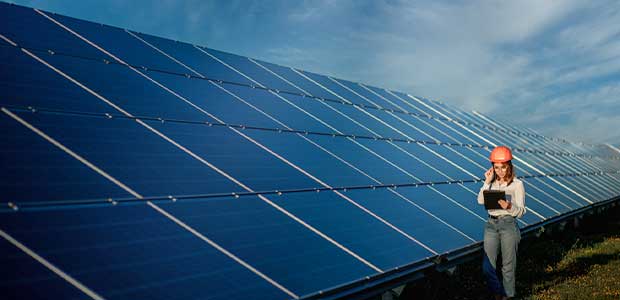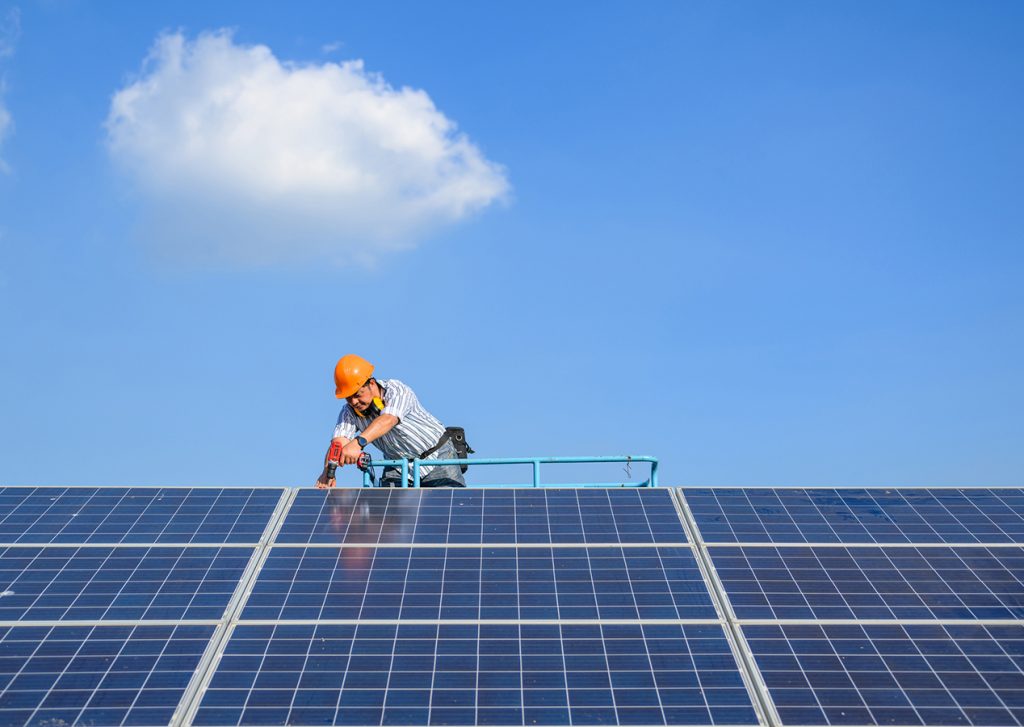Get Reliable Solar Power Solutions from Simply Solar Illinois Today
Get Reliable Solar Power Solutions from Simply Solar Illinois Today
Blog Article
Just How Solar Energy Can Help You Save Cash and Lower Your Carbon Impact
The integration of solar power right into your power portfolio provides an engaging opportunity for both economic cost savings and ecological stewardship. As various government motivations become offered, the inquiry occurs: how can one effectively browse the preliminary financial investments and continuous advantages of solar technology to maximize both financial and ecological gains?
Comprehending Solar Energy Cost Savings
While the shift to solar power frequently involves a first investment, comprehending solar power financial savings is vital for homeowners and companies alike. Solar energy systems can dramatically lower electrical energy bills by harnessing the sun's power, equating into substantial long-lasting economic advantages. By creating their own electricity, customers lessen reliance on grid power, which goes through rising and fall rates. These financial savings can gather over time, often leading to a fast return on investment.
Furthermore, solar power systems might certify for various economic rewards, including tax credit reports and refunds, further boosting their cost-effectiveness. The availability of web metering permits customers to market excess power back to the grid, creating an extra income stream. These variables add to the overall savings related to solar energy.

In addition to guide monetary cost savings, solar power uses the added benefit of raising property worth. Residences furnished with photovoltaic panels are usually more eye-catching to customers, as they promise lower energy costs - Simply Solar Illinois. Comprehending these components is important for any person thinking about solar power, as it highlights not simply the potential monetary gains, but additionally the more comprehensive ecological and financial benefits of embracing renewable resource solutions
First Prices vs. Long-Term Conveniences
When reviewing solar energy, it is very important to evaluate the initial expenses versus the long-term benefits. The upfront financial investment for solar panels, setup, and relevant equipment can be substantial, commonly varying from $15,000 to $30,000, depending upon the system size and home energy requirements. This first expense may discourage some house owners; nonetheless, it is important to consider the potential financial savings with time.
When mounted, solar power systems can significantly lower or also remove regular monthly power bills, resulting in substantial long-lasting financial benefits. Researches show that property owners can conserve anywhere from $10,000 to $30,000 over the life expectancy of their solar system, generally 25 years. Furthermore, lots of states offer motivations, tax obligation credit scores, and refunds that can counter preliminary expenses, making solar more easily accessible.

Reducing Your Carbon Impact
Minimizing your carbon impact is an essential factor to consider in today's environmentally aware culture, and taking on solar power is just one of one of the most efficient techniques to achieve this goal. Solar power is a tidy, sustainable source that dramatically diminishes reliance on nonrenewable fuel sources, which are major contributors to greenhouse gas discharges.

Furthermore, the prevalent adoption of solar innovation encourages the development of eco-friendly work and sustains innovations in energy storage space and effectiveness. The even more people and organizations spend in solar energy, the greater the collective decrease in carbon emissions, promoting a cleaner atmosphere for future generations.
Federal Government Rewards and Discounts
Adopting solar power not only profits the environment however can likewise cause considerable monetary savings, specifically with the accessibility of government incentives and refunds. Different federal, state, and neighborhood programs are designed to urge house owners and services to buy solar power systems, making the shift more affordable.
One of one of the most famous motivations is the Federal Investment Tax Credit (ITC), which enables planetary system owners to subtract a significant portion of the installation expenses from their government taxes. This incentive has actually been crucial in reducing the upfront expenditures related to solar energy systems. Furthermore, numerous states use their very own tax obligation credit scores, gives, and helpful site rebates that can further improve cost savings.
In addition, some city governments supply residential or commercial property tax exemptions for solar installations, making sure that home owners do not encounter raised residential property taxes as an outcome of their renewable resource investments. Utility companies may additionally supply rewards, including internet metering and feed-in tariffs, which permit solar energy users to sell excess power back to the grid.
Selecting the Right Planetary System
Choosing the proper solar system is essential for making best use of energy efficiency and economic benefits. The choice depends upon a number of elements, consisting of energy needs, budget, and readily available space. Homeowners ought to begin by analyzing their electrical energy usage to determine the system size required for optimal performance.
Following, think about the different sorts of solar modern technologies her response offered. Simply Solar Illinois. Photovoltaic Or Pv (PV) panels are one of the most common, transforming sunlight straight into power, while solar thermal systems focus on home heating water. Each type has unique advantages depending upon private needs
Budget factors to consider are additionally vital. Initial installment expenses can vary considerably, so it is very important to compare quotes from multiple providers and explore funding choices. Federal government motivations and refunds can even more lower the economic burden, making solar systems much more easily accessible.
Verdict
In summary, solar power presents a sensible option for achieving considerable expense savings while concurrently minimizing carbon discharges. The preliminary financial investment, though considerable, returns substantial long-lasting monetary advantages, with potential cost savings browse around this site ranging from $10,000 to $30,000 over 25 years. Moreover, the ecological benefits of solar power add to lasting practices vital for combating climate adjustment. Federal government incentives improve the expediency of solar technology adoption, motivating a shift in the direction of a cleaner, more financially efficient energy source.
Report this page